Ohio Employment Practices Liability Insurance

See How We're Different
or call us: 419-720-5825
Top 3 Recommended Policies
Index
Contact Us
Phone
agency@midwest-insure.com
Location
Northwood, OH
3310 Woodville Road, Suite D
Northwood, OH 43619
Elmore, OH
361 Rice Street
Elmore, OH 43416
In today’s complex business environment,
Ohio employers face a growing array of legal risks related to
employment practices. From wrongful termination claims to allegations of discrimination and harassment, the potential for costly lawsuits is significant. Employment Practices Liability Insurance (EPLI) has become an essential safeguard for businesses of all sizes in Ohio. This comprehensive guide explores what EPLI is, why it matters, and how Ohio employers can protect themselves effectively.
What is Employment Practices Liability Insurance (EPLI)?
Employment Practices Liability Insurance, commonly known as EPLI, is a specialized insurance policy designed to protect employers from financial losses resulting from employment-related claims. These claims typically arise from allegations made by current, former, or prospective employees concerning their treatment in the workplace. As businesses navigate the complexities of labor laws and employee relations, EPLI serves as a crucial safety net, allowing employers to focus on their operations without the constant worry of potential lawsuits.
Unlike general liability insurance, which covers bodily injury or property damage, EPLI specifically addresses claims related to employment practices. This includes wrongful termination, discrimination, sexual harassment, retaliation, failure to promote, and other workplace torts or violations of employment laws. The importance of EPLI cannot be overstated, as it not only protects financial assets but also helps maintain a positive workplace culture by encouraging fair treatment and compliance with legal standards.
Key Coverage Areas of EPLI
EPLI policies cover a range of employment-related claims, including but not limited to:
- Wrongful termination: Allegations that an employee was fired in violation of employment laws or contracts.
- Discrimination: Claims based on race, gender, age, disability, religion, or other protected characteristics under federal and Ohio state laws.
- Sexual harassment: Allegations of unwelcome sexual advances or conduct creating a hostile work environment.
- Retaliation: Claims that an employer took adverse action against an employee for engaging in protected activities, such as whistleblowing or filing a complaint.
- Failure to promote or wrongful demotion: Allegations of unfair treatment in career advancement opportunities.
By covering legal defense costs, settlements, and judgments, EPLI helps Ohio businesses mitigate the financial impact of employment disputes. Furthermore, EPLI can also provide coverage for claims made by third parties, such as customers or vendors, who may allege that they were subjected to discrimination or harassment by an employee of the insured business. This broader scope of coverage underscores the importance of EPLI in today’s diverse and dynamic work environment.
In addition to the financial protections offered, having EPLI can also enhance a company's reputation. By demonstrating a commitment to fair employment practices and a proactive approach to addressing workplace issues, businesses can foster trust among employees and clients alike. This can lead to improved employee morale, reduced turnover, and a more engaged workforce, all of which are vital for long-term success. As the landscape of employment law continues to evolve, EPLI remains a key component in safeguarding both the employer and the workforce against the complexities of modern employment challenges.

Why Ohio Employers Need EPLI
Ohio employers operate under a robust framework of employment laws at both the federal and state levels. While these laws protect employee rights, they also increase the risk of litigation for employers. EPLI is a critical risk management tool to navigate this landscape.
Ohio’s Employment Law Landscape
Ohio follows federal employment laws such as Title VII of the Civil Rights Act, the Americans with Disabilities Act (ADA), and the Age Discrimination in Employment Act (ADEA). Additionally, Ohio has its own laws that provide protections, including the Ohio Civil Rights Act, which prohibits discrimination in employment based on race, color, religion, sex, military status, national origin, disability, age, or ancestry.
Given these protections, Ohio employers must be vigilant about compliance. Even unintentional missteps can lead to costly claims. For example, a 2023 report by the Ohio Chamber of Commerce noted a 15% increase in employment-related lawsuits over the past five years, reflecting a national trend of rising workplace disputes. The complexity of these laws can be daunting, especially for smaller businesses that may lack dedicated human resources departments to navigate the intricacies of compliance. Regular training and updates on employment law can mitigate risks, but the evolving nature of legislation means that employers must remain proactive in their approach.
The Financial Impact of Employment Claims
Employment lawsuits can be expensive. Legal defense costs alone can run into tens of thousands of dollars, even if the employer ultimately prevails. Settlements and judgments can be significantly higher. According to the U.S. Equal Employment Opportunity Commission (EEOC), the average settlement for discrimination claims nationally was approximately $125,000 in 2022.
For small and mid-sized businesses in Ohio, such costs can be devastating. EPLI provides a financial safety net, covering legal fees, settlements, and judgments, thereby preserving business continuity and reputation. Beyond the immediate financial implications, the reputational damage from a lawsuit can have long-lasting effects. Negative publicity can deter potential clients and employees, making it crucial for businesses to protect themselves not just legally, but also in terms of public perception. Furthermore, having EPLI can signal to employees and stakeholders that a company is committed to fair employment practices, fostering a more positive workplace culture and enhancing overall employee morale.
Common Employment Practices Claims in Ohio
Understanding the types of claims commonly filed in Ohio helps employers anticipate risks and tailor their EPLI coverage accordingly.
Wrongful Termination
Wrongful termination claims arise when an employee alleges they were fired in violation of employment laws or contracts. In Ohio, while most employment is “at-will,” meaning either party can terminate without cause, there are exceptions. Terminations based on discrimination, retaliation, or violation of public policy can lead to lawsuits.
For example, a 2022 case in Cleveland involved an employee alleging wrongful termination after reporting safety violations. The case settled for $200,000, illustrating the financial stakes. Employers should be aware that even seemingly minor infractions can escalate into significant legal battles if not handled with care. Training managers on proper termination procedures and ensuring that all decisions are well-documented can help mitigate these risks.
Discrimination and Harassment
Discrimination claims remain among the most frequent employment-related lawsuits. Ohio employers must comply with both federal and state anti-discrimination laws. Sexual harassment claims, in particular, have gained heightened attention following the #MeToo movement, leading to more rigorous workplace policies and increased litigation.
In 2023, the Ohio Civil Rights Commission reported a 10% rise in harassment complaints, underscoring the ongoing need for preventive measures and EPLI protection. This uptick highlights the importance of fostering an inclusive workplace culture where employees feel safe to report inappropriate behavior. Regular training sessions on diversity, equity, and inclusion can not only help to prevent claims but also enhance employee morale and productivity.
Retaliation Claims
Retaliation claims occur when employees allege adverse actions taken against them for engaging in protected activities, such as filing complaints or participating in investigations. These claims can be complex and costly to defend.
Ohio employers must ensure that their disciplinary and termination procedures are well-documented and legally compliant to reduce retaliation risks. Additionally, it is crucial for organizations to create a transparent process for employees to voice concerns without fear of reprisal. Implementing anonymous reporting channels and conducting regular audits of workplace practices can help in identifying potential issues before they escalate into formal complaints, ultimately fostering a more trusting and open work environment.
How EPLI Works in Ohio
Understanding the mechanics of EPLI policies helps Ohio employers select appropriate coverage and manage claims effectively. Employment Practices Liability Insurance (EPLI) is crucial for protecting businesses against potential lawsuits stemming from various employment-related issues, including wrongful termination, discrimination, and harassment. With the rise of workplace litigation, having a robust EPLI policy can be a vital component of a company's risk management strategy.
Policy Structure and Coverage Limits
EPLI policies typically include coverage limits expressed as “per claim” and “aggregate” amounts. For example, a policy might offer $1 million per claim and $3 million aggregate coverage annually. Employers should assess their risk exposure and choose limits accordingly. It's essential for businesses to evaluate their specific industry risks, employee count, and past claims history when determining appropriate coverage limits. Additionally, some insurers may offer optional enhancements, such as coverage for third-party claims, which can further protect businesses from lawsuits initiated by clients or vendors.
Deductibles or retentions apply, meaning the employer pays an initial amount before insurance coverage begins. These vary by policy and insurer. A higher deductible might lower the premium but could lead to significant out-of-pocket expenses in the event of a claim. Therefore, employers must strike a balance between manageable premiums and potential financial exposure.
Claims-Made Basis
Most EPLI policies are written on a “claims-made” basis, which means the policy must be active both when the alleged wrongful act occurred and when the claim is made. This emphasizes the importance of continuous coverage to avoid gaps. Employers should be aware of the retroactive date, which is the earliest date that an incident can occur for coverage to apply. If a business switches insurers, it may need to purchase "tail coverage" to ensure that claims made after the policy ends are still covered, thus protecting against unforeseen liabilities that may arise after termination of the policy.
Exclusions and Limitations
Common exclusions include intentional acts, bodily injury claims (covered under general liability), and claims arising from wage and hour disputes, which require separate coverage. Ohio employers should carefully review policy language to understand what is and isn’t covered. It's also important to note that some policies may have specific limitations regarding the types of employees covered, such as executives or independent contractors, which can impact the overall protection offered. Employers are encouraged to work closely with their insurance brokers to customize their EPLI coverage to fit their unique operational needs and legal environment.

Choosing the Right EPLI Policy in Ohio
Selecting an EPLI policy that aligns with a company’s size, industry, and risk profile is crucial for effective protection.
Assessing Business Risks
Ohio businesses should conduct a thorough risk assessment considering factors such as workforce size, diversity, history of employment claims, and industry-specific risks. For example, healthcare providers and manufacturing companies may face different employment-related exposures. Additionally, understanding the demographics of the workforce can provide insights into potential discrimination claims. Companies with a diverse workforce may need to pay particular attention to training programs that foster an inclusive environment, thereby mitigating the risks of harassment or discrimination lawsuits.
Working with Experienced Insurance Providers
Partnering with insurance carriers and brokers familiar with Ohio’s legal environment ensures tailored coverage and responsive claims handling. Many insurers offer risk management resources, including employee training and policy reviews, which can reduce claim frequency. Furthermore, establishing a strong relationship with these providers can lead to more favorable terms and conditions in the policy, as they become more attuned to the specific needs and challenges faced by the business. Regular communication about evolving risks and industry trends can also help businesses stay ahead of potential liabilities.
Cost Considerations
EPLI premiums vary widely based on coverage limits, deductibles, industry, and claims history. Ohio employers should balance cost with adequate protection, recognizing that underinsurance can lead to significant financial vulnerability. It’s also essential to consider the long-term implications of EPLI costs; investing in a comprehensive policy may save money in the long run by preventing costly litigation and settlements. Additionally, businesses should explore available discounts for implementing proactive measures, such as employee handbooks and clear reporting procedures, which can further enhance their risk profile and potentially lower premiums.
Best Practices to Minimize Employment Claims in Ohio
While EPLI provides financial protection, proactive measures to reduce the likelihood of claims are equally important.
Implement Clear Employment Policies
Develop and communicate comprehensive workplace policies addressing discrimination, harassment, retaliation, and termination procedures. Ohio employers should ensure policies comply with both federal and state laws and are regularly updated.
Conduct Regular Employee Training
Training on workplace conduct, anti-harassment, and diversity fosters a respectful environment and reduces legal risks. Ohio employers can leverage resources from the Ohio Civil Rights Commission and other organizations for effective training programs.
Maintain Thorough Documentation
Accurate records of employee performance, disciplinary actions, and complaints are vital for defending against claims. Documentation supports transparency and consistency in employment decisions.
Engage in Prompt and Fair Investigations
When complaints arise, Ohio employers should act swiftly to investigate and resolve issues. Fair handling of disputes can prevent escalation to litigation.
Ohio Employment Laws Impacting EPLI Coverage
Understanding specific Ohio statutes and regulations helps employers anticipate potential claims and coverage needs.
The Ohio Civil Rights Act
This act prohibits employment discrimination based on race, color, religion, sex, national origin, disability, age, ancestry, and military status. It is enforced by the Ohio Civil Rights Commission, which investigates complaints and can impose penalties.
Ohio’s Whistleblower Protections
Ohio law protects employees who report illegal or unethical conduct from retaliation. EPLI coverage often includes claims related to whistleblower retaliation, a growing area of employment litigation.
Family and Medical Leave Act (FMLA) Compliance
While FMLA is a federal law, Ohio employers must comply with its provisions regarding unpaid leave for qualifying medical and family reasons. Failure to comply can result in claims covered under EPLI.
Real-World Examples of EPLI Claims in Ohio
Examining actual cases illustrates the importance of EPLI for Ohio employers.
Case Study 1: Discrimination Settlement in Columbus
A mid-sized technology firm in Columbus faced a discrimination claim from a former employee alleging gender bias in promotion decisions. The case was settled out of court for $150,000, with EPLI covering legal fees and settlement costs. The company also implemented new diversity training as a result.
Case Study 2: Retaliation Claim in Cincinnati
An employee at a manufacturing plant in Cincinnati alleged retaliation after reporting safety violations. The lawsuit resulted in a $300,000 judgment against the employer. EPLI coverage helped cover defense costs, but the company faced increased premiums afterward.
Case Study 3: Sexual Harassment Allegation in Dayton
A Dayton-based retail company was sued for sexual harassment claims involving a supervisor. The case was resolved through mediation with a $100,000 settlement. The insurer provided risk management consultation post-claim to improve workplace policies.
Conclusion: Securing Your Ohio Business with EPLI
Employment Practices Liability Insurance is a vital component of risk management for Ohio employers. With the increasing complexity of employment laws and the rising frequency of workplace claims, EPLI offers essential financial protection and peace of mind.
By understanding the scope of EPLI coverage, assessing business risks, and adopting proactive employment practices, Ohio employers can safeguard their operations and foster a fair, compliant workplace environment. Partnering with knowledgeable insurance providers and legal advisors ensures that businesses remain prepared for the challenges of today’s employment landscape.
Investing in EPLI is not just a precaution—it is a strategic decision that supports long-term business resilience in Ohio’s dynamic market.



